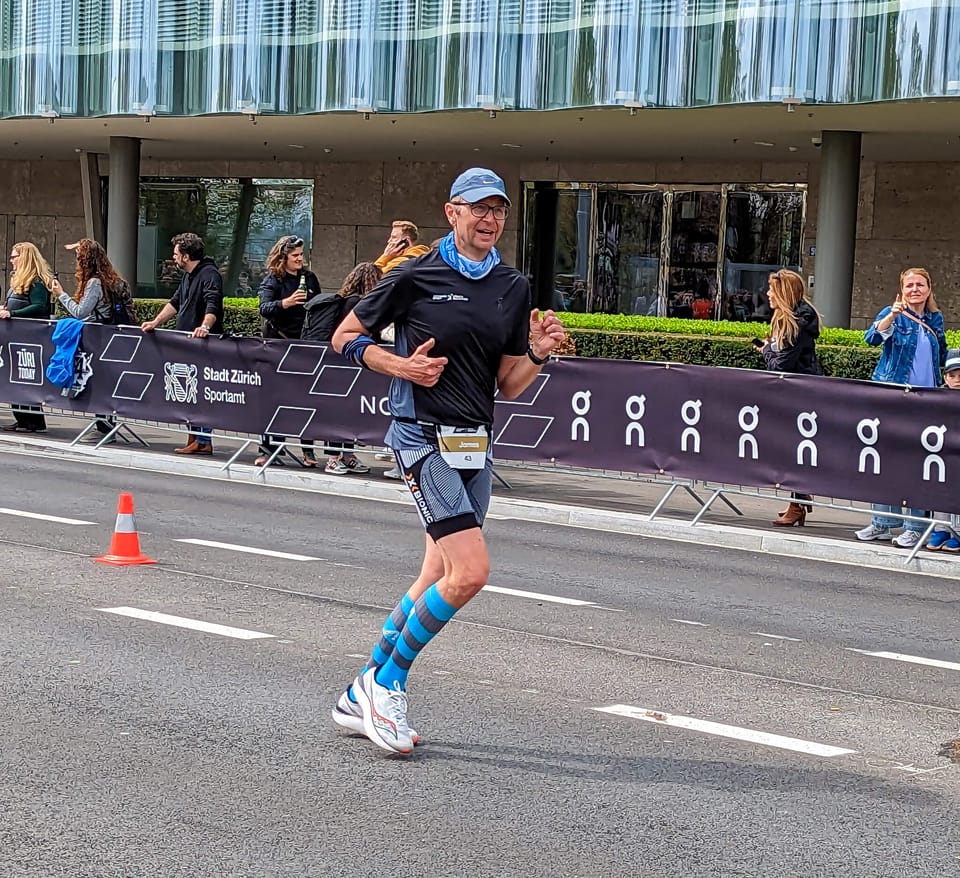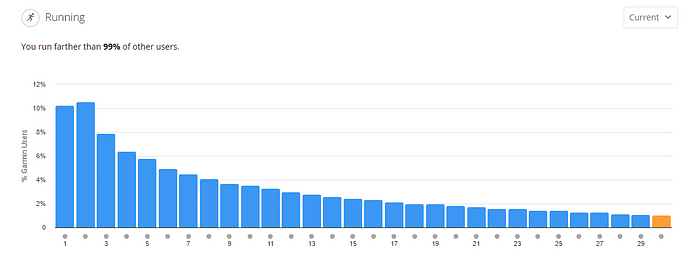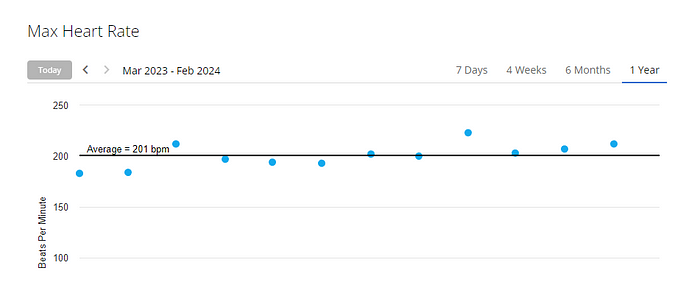A Glass of Water Almost Ended My Running Career

Greetings friends!
Here’s what I feared would derail my running career
In a word, my heart. My heart rate has always run relatively high during exercise. I thought nothing of it because I know people vary significantly in their baselines and exercising heart rates.
Plus, my resting heart rate has been steady at around 50 beats per minute for many years. A high heart rate during vigorous exercise combined with a low rate at rest is a sign of good conditioning and heart health.

What started to niggle at my self-composure was something in between — seeing my heart rate spike while doing only modest exercise. If my easy-pace heart rate is typically in the 140s, I’d see it averaging 20-30% higher. For the last two years or so, this was happening once or twice a month on an unpredictable basis.
Because these heart rate peaks happened infrequently, for no reason and with no pattern that I could discern, I did what many dedicated runners would: I ignored it. (Or, I’m an idiot. They’re not mutually exclusive.)
I had a scary period last year before the 2023 Tokyo Marathon where my heart rate jumped far too high on my easy runs in the two weeks before the race. Hardly confidence building, but the race itself was a fantastic success.
Because I could detect no pattern, I ignored the increasing frequency with which these episodes were happening. Then January 11, 2024 rolled around and I could ignore it no longer.
Don’t worry, I suffered no heart attack or injury. It’s just that on this easiest of runs, and even with frequent walk breaks (where my heart rate usually drops into the 70s), I could not get my heart rate to fall. A high of 191 and an average of 163. Something was wrong, and I was finally frightened into figuring it out.

The life lesson — life ends, even mine
The life lesson is something I knew logically, but not emotionally. It’s that I will die. Not “I will die hypothetically someday,” but “I will die and be gone for real, just like everyone who has ever lived and died.”
As a consequence, everything I do will have a last time. One day I will drive a car for the last time, drink the last cup of coffee I will ever drink, and go for my last run. Probably not all on the same day, but you get my point — from sleeping to reading Klugne newsletters to evacuating your bowels, everything will end.
Although the Stoics tell us that reflecting on our mortality helps ensure we do not take living for granted, I’m happy I made it this far in life without cause to dwell on my death. Not only that but without once feeling in my gut the truth of it.
That changed last month, and for reasons that those of you bit by the running bug may relate with. After my January scare, I was confronted with the unhappy thought that I would have to stop running. That thought alone drove home the visceral realization that all things end, including me.

The reminder — unintended consequences lurk unseen
My problem turned out (I believe, it’s still early days) to be an unintended consequence of a simple change I introduced to my daily habits. To explain, a short digression on unintended consequences is in order.
My work involved keeping a large multinational company on the right side of the law all over the world. That meant I dealt with laws and regulations passed by regulators trying to solve one particular problem.
The great frustration in legal work is the great truth that laws and regulations almost always create unintended consequences. A law may address the underlying issue (although often it fails to do even that well), but the law creates new problems as well.
Would it surprise you to know that unintended consequences lurk in our private lives as well? We take an action designed to achieve one outcome and end up creating problems in other areas of our lives. My action was trivial, or so I thought, and perhaps other Grand Master runners will relate.
A Master runner is someone over the age of 40. A Grand Master is someone over 60, but many clubs will call you a Grand Master over the age of 50. In either case, for men, this means your prostate has had plenty of time to wreak mischief of its own, with the predictable result that you’ll need to pee more frequently.
At the same time, dedicated runners also know the importance of good recovery. This includes quality sleep time. I have IronMan friends who try to sleep 9 or 10 hours a night.
Now, dear reader, we have (almost) all the ingredients for the plot of our (almost) murder mystery.
- Getting up to pee every few hours was interrupting my sleep.
- I took what seemed a natural and easy step of not drinking after a certain point in the afternoon.
- No intake of water for several hours before bedtime = less need to pee.
The final ingredient to our mystery is my morning routine. I luxuriate over a cup of coffee and typically then head out for a run. I run on an empty stomach and have my first meal at lunchtime.

Did you know that dehydration is one of the causes of an elevated heart rate in otherwise healthy people? I didn’t.
That’s the case even though I knew dehydration could greatly affect race performance, and I carefully hydrated before and during races. Why did it never occur to me that training runs in a state of planned dehydration (no pee nights) might affect my heart rate?
The simple tip — for runners and non-runners alike
I want to start with “Don’t be an idiot,” but I know this is genuinely difficult, even for smart people. That’s because we each have blind spots. Often about things that are important to us, which makes our blindness all the more ironic.
How about this: don’t suffer in silence. If you are worried about something, talk about it with a friend or family member. Google it if that gets you thinking. See your doctor.
In hindsight, my problem is likely self-induced and thus entirely avoidable. I still don’t drink at night, but now upon waking I fill myself a big glass of water and guzzle it down alongside my coffee.
Fingers crossed, I won’t need to shelve my running shoes anytime soon.
Be well.
PS — For the suspicious among you, I’ll add this interesting fact. My first episode of an unusually high heart rate came two weeks after I contracted COVID. That, in turn, happened after I’d been vaccinated twice and boosted once. However, since I can’t undo any of that, I’m sticking with my water hypothesis.
Hit reply to tell me what's on your mind or write a comment directly on Klugne. If you received this mail from a friend and would like to subscribe to my free weekly newsletter, click here.






Member discussion